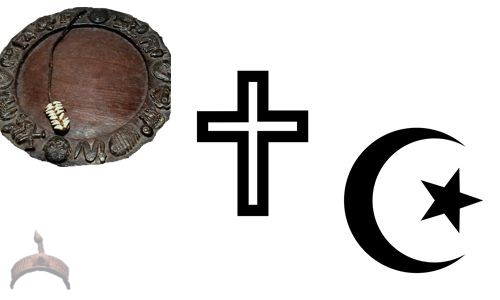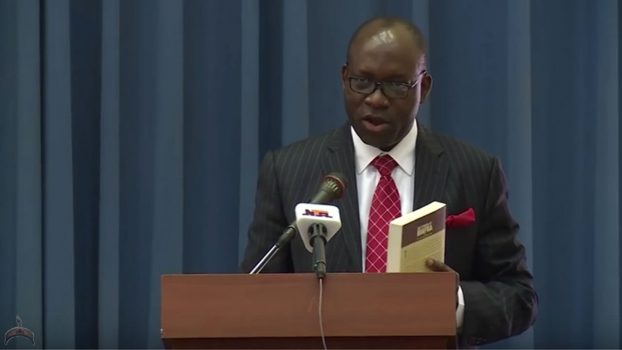Christiana Oluwatoyin Oluwasesin, Florence Chukwu, Abdullahi Umaru, Methodus Chimaije Emmanuel, Bridget Agbaheme and Eunice Elisha all have one thing in common; they were gruesomely murdered in cold blood by religious fanatics acting on the disguise of impulsive cerebral dysfunction termed blasphemy.
For Christiana, a mother of two and teacher at the Government Secondary School in Gombe, all that was needed to end her life was the allegation that she touched the bag of her student which contained a Quran and such act interprets to a direct defilation of the Holy Book. She was dragged out of her classroom by ‘Allahu Akbar’ chanting students and beaten to death.
In a similar fate, Florence, a Christian teacher in Bauchi State met the wrath of her students when she confiscated a copy of the Quran from a student who was reading it during an English class. She did not only pay with her life but for that single act twenty other Christians in the school were also executed by the students.
While Abdullahi was beheaded in Kebbi for his alleged provocative utterances against Prophet Muhammad, Methodus Emmanuel’s post on Facebook cost him his life. Can we forget in a hurry, the recent story of Mrs Bridget, whose only sin was advising a customer to move forward a bit from the entrance of her shop before performing the Ablution? Bridget was lynched to death by fanatic mob while her husband watched helplessly.
Mrs Eunice was hacked to death by errant mob in the Federal Capital Territory who felt uncomfortable with her early morning sermon about her faith. To them, such disturbance is unforgivable and the adequate reward is nothing but death. What about the undocumented eight students who lost their lives over a mere argument at the Audu Gusau Polytechnic in Zamfara?
The unabated summary execution of Nigerians under the disguise of defending a religious belief remains one of the most disgusting failures of government in protecting the sacredness of humanity.
It is most shocking that perpetrators of these horrendous acts are not only unchecked but armed by section 204 of Nigeria’s Criminal Code. As a signatory to the Universal Declaration of Human Rights (1948), the legalization of blasphemy by our Criminal Code contradicts Article 3, 5, 8, 10, 11, 18 and 19 of that declaration on which basis Section 38 and 39 of the 1999 Constitution (as amended) were written.
A dissect of the aforementioned Criminal Code shows clearly wide lacunae.
The section states:
“Any person who does an act which any class of persons consider as a public insult on their religion, with the intention that they should consider the act such an insult, and any person who does an unlawful act with the knowledge that any class of persons will consider it such an insult, is guilty of a misdemeanor, and is liable to imprisonment for two years”
The section fails to provide answers to some fundamental questions on which premises fanatics have continue to operate. By failing to describe the act(s) which constitute an insult to religion, the law offers a get-out-of-jail-free-card to disgruntled elements who are at liberty to determine what is an insult or what is not. As in cases aforementioned, touching of a bag containing the Quran, posting on social media amongst others may be viewed as an insult.
The phrase ‘any class of persons’ is erroneous as it indicates that any individual, either with in-depth knowledge of the religion or not can determine what blasphemy is. What this interprets to is that what it takes to arrest or kill (as in most cases) is a baseless accusation by someone without adequate knowledge of the supposed crime.
I believe it is merely intellectual laziness that our country still concerns itself with religion when making laws.
While the argument is that laws are product of Custom, the neglect of native religions in the formation of the constitution erodes this argument. For Nigeria, imbibing Christianity and Islam as the basis of customary law contradicts Africanism which itself is the basic law.
Enacting a law on the premises of these two religions constitute a direct infringement on equity which the likes of Ogun, Sango, Obatala, Amadioha, Bori, Alledjenu amongst others should enjoy. Religion is wide, hence should be considered as an individual belief practiced by faith and not made a subject of national embracement. Imagine if like Christianity and Islam, other religions are also protected by the law, hardly will anyone remain if people get killed for ‘insulting’ Esu (a Yoruba God, [in]appropriately referred to as devil).
Finally, the basis of any religion is love, tolerance and humanity. If there is a G(g)od that requires its followers to take lives in other to prove its might then such G(g)od deserves no worship. If there is a G(g)od that sees death as the only punishment for abuse or insult against itself, then worshipping such G(g)od is a waste of time. If our G(g)od is one that demands intolerance of other people’s beliefs, then such G(g)od should be discarded. There is no reason whatsoever for anybody to take the life of another person.
At a time when even the lives of animals are now sacred, the best we can do for humanity is to protect human lives with everything we have got. Nothing is worth killing anyone over, definitely not religion!
Boladale is on Twitter @Adekoyabee
 Ọmọ Oòduà Naija Gist | News From Nigeria | Entertainment gist Nigeria|Networking|News.. Visit for Nigeria breaking news , Nigerian Movies , Naija music , Jobs In Nigeria , Naija News , Nollywood, Gist and more
Ọmọ Oòduà Naija Gist | News From Nigeria | Entertainment gist Nigeria|Networking|News.. Visit for Nigeria breaking news , Nigerian Movies , Naija music , Jobs In Nigeria , Naija News , Nollywood, Gist and more









